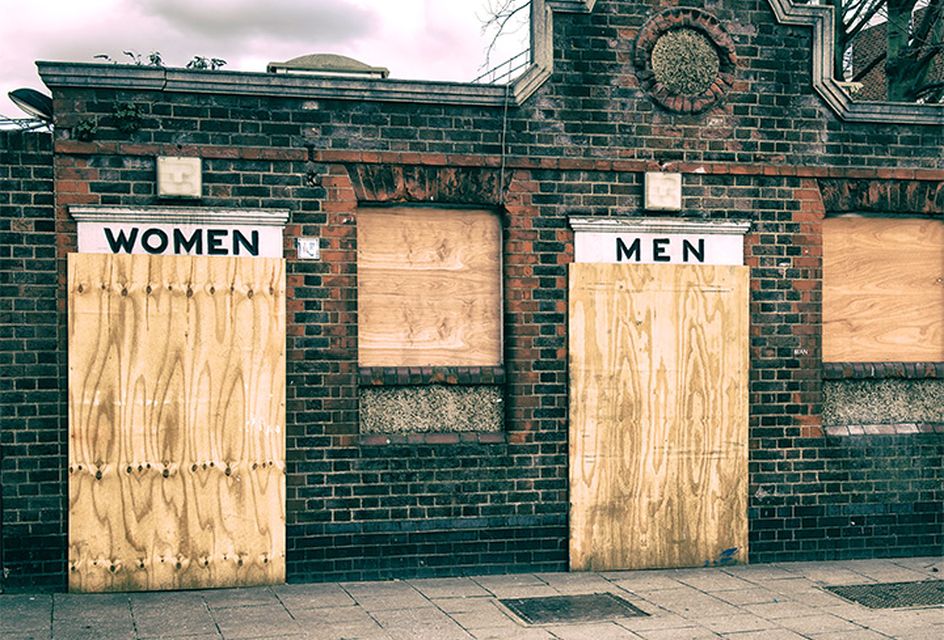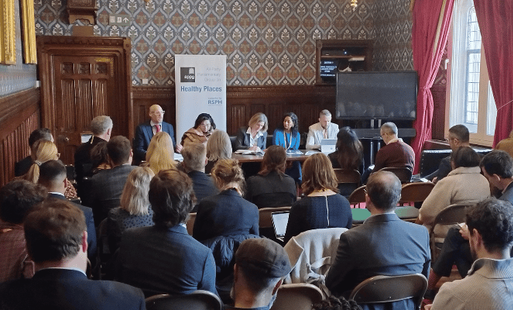Taking the P: Improving public toilets in the UK
In 2019, RSPH published a report examining the dire state of the UK's public conveniences, the impact this has on health and wellbeing, and public perceptions of what should be done.

In recent decades, an increasing pressure on local authority budgets has led to the privatisation or closure of many public toilets, creating a knock-on impact to the health of people across the country.
The health burden of this declining public toilet provision falls disproportionately on people with ill health or disability, the elderly, women, outdoor workers, and the homeless. For example, fear of or knowledge of a lack of facilities nearby can tie people to within a small distance of their home, acting as a ‘loo leash’ for many.
This report explores the public’s perceptions of public toilets, the various reasons why some choose not to use them, as well as the most common courses of action when a public facility is not immediately available.
Taking the P: at a glance
Key findings:
One in five of the public don’t go outside as often as they would like
This rises to two in five among people with conditions requiring frequent toilet use
More than half of the public practise deliberate dehydration which can seriously affect health and exacerbate existing medical problems
Recommendations:
The Government should make the provision of public toilets compulsory on a well planned and regulated basis.
The Government must reverse years of funding cuts to local authorities and invest in our civic infrastructure.
Policies improving access to public toilets and their role in assisting hygiene, hydration, exercise and more must be freely discussed in public health discourse.
What are the health impacts of declining public toilets?
‘Loo leash’
Most of us need a public toilet occasionally, but this is a more urgent problem for those with medications or medical conditions causing increased frequency of the need for a toilet (such as diabetes, or bladder, bowel or prostate conditions). In addition to diagnosed conditions, advancing age increases the need, as does the requirement for nappy changing and young children who can’t wait. Knowledge of the lack of facilities nearby acts as a ‘loo leash’, deterring some from venturing far beyond their homes.
Deliberate dehydration
Deliberate dehydration or ‘holding it in’ to reduce the need for a toilet is commonly practised by those who fear not being able to find a public loo, but this can seriously affect health and exacerbate existing medical problems such as cystitis.
Sanitation
The health impact of public toilet closures includes the problems of street urination and defaecation. By-laws prohibiting public urination do not exist for over half the local authorities in the UK, and where they do they are rarely enforced.
What are the public’s views on public toilets?
Lack of provision
Given the rate of closures, it is unsurprising that 74% of people reported that there are not enough public toilets. Regarding location of toilets, over 60% reported that there are insufficient public toilets in parks, and the majority of women and men in the survey (84% and 69% respectively) agreed there should be greater provision of toilets for women.
Places of convenience
When people in the survey could not find a public toilet, supermarkets were a popular option (70%), followed by cafés or restaurants (63%). A smaller proportion resorted to pubs, petrol stations and betting shops, but of greater concern was the 16% who use a back alley or bush, this percentage being higher for men and for those with a frequent need for a toilet.






